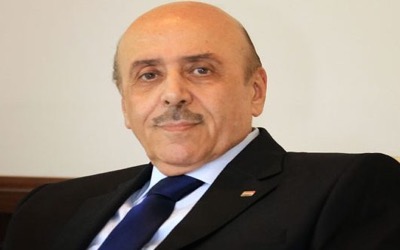
On 16 October 2017, General Ali Mamelouk, head of Syrian State Security, made an official visit to Cairo, where he met his Egyptian counterpart. The two men spoke about the fight against the jihadists, whose parent company, the Muslim Brotherhood, was constituted in Egypt in 1951 by the Anglo-Saxon secret services.
The current Brotherhood took its name from that of the secret society created by Hassan el-Banna in 1928, and dissolved in 1949 after a wave of political assassinations, including the murder of the Prime Minister.
On 8 October, Egypt voted in favour of two projects for Resolutions to be presented to the Security Council, one from France and the other from Russia. Both projects were rejected by return vetos [1].
The recent history of Egypte is chaotic. In 2011, it was the victim of a colour revolution organised by the National Endowment for Democracy, which ended with the resignation of President Moubarak [2]. It then fell victim to a coup d’état by the Muslim Brotherhood, who blackmailed the Presidential Electoral Commission into proclaiming the election of Mohamed Morsi, who in fact had lost [3]. Finally, it suffered another blow with the destitution of President Morsi by the army – at the request of all political parties except the Muslim Brotherhood.
The current President, Marshall Abdel Fattah al-Sissi, first of all outlawed the Brotherhood and fought against it. He transmitted to Saudi Arabia the proof of a conspiracy by a faction of the Brotherhood to overthrow the Wahhabi monarchy, and received in exchange considerable financial support for his country. Last April, he offered King Salmane the islands of Tiran and Sanafir, causing uproar throughout the country [4]. This decision was invalidated by a tribunal and remains unsettled.
So far, President Sissi has failed to fight efficiently against the Muslim Brotherhood, and has not been able to protect the Christians from them either, despite his engagements. He has installed a repressive system which is aimed at fighting the Brotherhood as well as defending a traditionalist concept of society.
On 8 October, Saudi Arabia reacted violently against Egypt’s support for the Russian proposition presented to the Security Council.
[1] “Security Council meeting on Syria (crosed vetoes)”, Voltaire Network, 8 October 2016.
[2] The local directors of the NED, including Robert Becker, were judged and found guilty of conspiring against the country, before being freed and expelled to the United States.
[3] “Egypt Presidential Elections Fraud In Favor Of Mohamed Morsi”, Voltaire Network, 20 June 2012.
[4] “The Israëli-Saudi-Egyptian agreement on the islands of Tiran and Sanafir”, Translation Pete Kimberley, Voltaire Network, 3 May 2016.


















Stay In Touch
Follow us on social networks
Subscribe to weekly newsletter